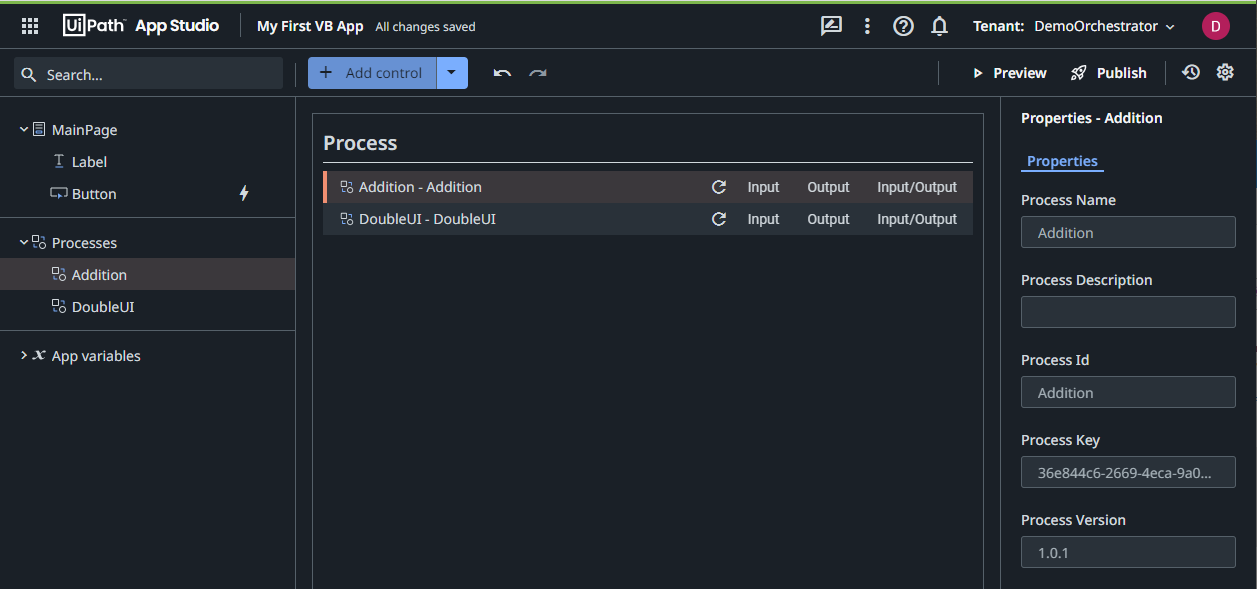- Getting Started
- Before You Begin
- How To
- Notifications
- Using VB Expressions
- Designing your App
- Events and Rules
- Rule: If-Then-Else
- Rule: Open a Page
- Rule: Open URL
- Rule: Close Pop-Over/Bottom Sheet
- Rule: Show Message
- Rule: Show/Hide Spinner
- Rule: Set Value
- Rule: Start Process
- Rule: Reset Values
- Rule: Upload File to Storage Bucket
- Rule: Download File From Storage Bucket
- Rule: Create Entity Record
- Rule: Update Entity Record
- Rule: Delete Entity Record
- Rule: Add to Queue
- Rule: Trigger workflow
- Leveraging RPA in your App
- Input and Output Type Properties
- Apps and attended automations: bi-directional and instant communication
- Supported Process Argument Types
- Replacing a Process
- Referencing a Storage Bucket From Orchestrator
- Connecting Apps to an on-premises Orchestrator instance
- Orchestrator Permissions
- Data Flow Between UiPath Apps and Orchestrator
- Leveraging Entities in Your App
- Leveraging Queues in Your App
- Application Lifecycle Management (ALM)
- Basic Troubleshooting Guide

Apps user guide
Input and Output Type Properties
You can use Input/Output arguments in UiPath Apps.
A process of type Input/Output is treated as a single property. No separate input and output versions are created for the same property. For this, a third category of properties called Input/Output is used.

When a control is bound to a In/Out property, the same control works as input and as output. This means that while a process is running, the control value goes as input to the process, and once the process is completed, the same control is refreshed with the output value.
Importing Apps
When importing an app from the cloud environment to an on-premises environment, which does not support In/Out properties, the following applies:
- The entire Input/Output section disappears.
- Bindings referring to properties from the Input/Output section are displayed as invalid.
- After replacing the process, the In/Out properties are added to both sections. You can now update the invalid bindings to point to the new properties.
Note:
Importing an app from cloud to Automation Suite is only supported for backwards compatibility, meaning you need to export on cloud before the Automation Suite version is released.